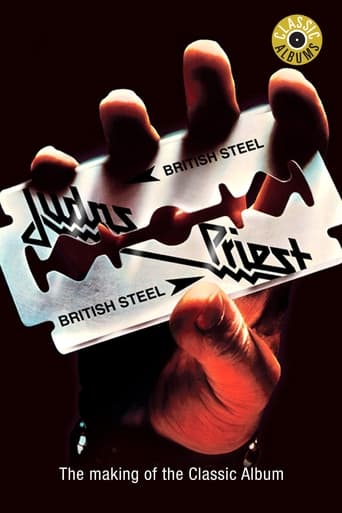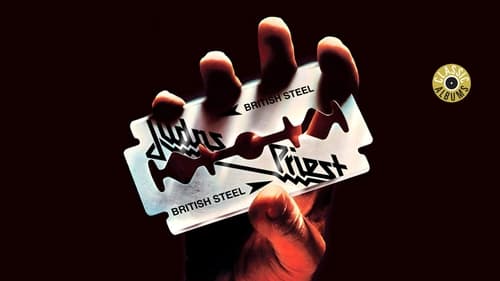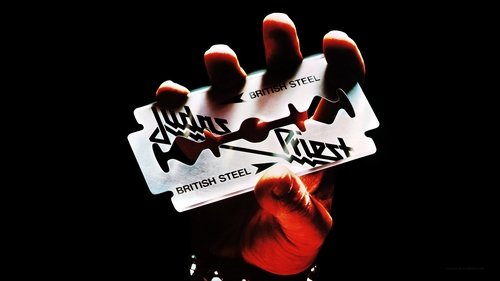




It's fun, it's light, [but] it has a hard time when its tries to get heavy.
View MoreIn truth, there is barely enough story here to make a film.
View MoreThe film may be flawed, but its message is not.
The storyline feels a little thin and moth-eaten in parts but this sequel is plenty of fun.
View MoreGay-aesthetic leather, synchronous headbanging, kiddie melodies, campy high-pitched vocals, and cliché riffs – this is essentially what Judas Priest gave us. They may have been co-pioneers of heavy metal but they also introduced the element of shame and embarrassment into it. The silly image which JP perpetuated, along with later bands like Manowar and (more recently) Hammerfall, still looms like a dark shadow over some other – better – metal genres, helping all those who despise heavy music by giving them plenty of ammunition to ridicule it with. 80s thrash and hardcore bands thankfully discarded some of these clichés, but the stigma of infantile sword-'n'-sorcery-'n'-motorbikes crap is still super-glued to the image of metal in the media, and among the utterly clueless populace who still actually believe that metal is random noise written by tone-deaf rank amateurs. (These are the same yuppies and working-class dimwits who listen to techno and Lady Ga-Ga, so nuff said.) It is hence HILARIOUS when Tipton flat-out lies that JP had always tried to "push the boundaries in order to give metal more acceptability".Speaking of absurd statements, bassist Ian actually says the following without batting an eye-lid: "We didn't want to sound (bluesy) like everyone else, and from then on we were always trying to sound different from everyone else." This couldn't be further from the truth. Ian should have become a politician, the way he lies without his nose growing even a millimeter. Let's take a look at JP's track record: when NWOBHM hit the scene, they suddenly started sounding more like Iron Maiden and other English bands, i.e. they toned down their pop-music influence and started playing heavier riffs. (Halford pretty much even admits to this in the "Metal Evolution" documentary.) Only a little later, when glam metal hit its commercial peak in the mid-80s, selling millions, JP suddenly softened their approach (hence the decidedly pop-like "Turbo"). In the late 80s, they had noticed how big thrash was getting (while traditional heavy metal was stagnating sales-wise), hence "Painkiller" was born; it had thrash riffing on it (a JP premiere), presenting themselves at their heaviest yet, with songs that would've been unimaginable just a few years back – especially during their "Turbo" phase. In short, JP were nearly always chasing the buck, much like Scott Ian, David Coverdale, Stanley/Simmons, Steve Tyler, and all the others for whom music had always been first-and-foremost a road to fame and fat bank-accounts. JP are typical working-class; it's more common for musicians from poorer backgrounds to chase money (rather than good music) in such an obvious, greedy manner than middle-class kids who succeed. Some would correctly label JP's music as "archetypal heavy metal", but I prefer the word "stereotypical"; dull, predictable, unadventurous HM of the most cliché kind. Their influence on many (great/not-so-great) metal bands is undeniable, but this is more of an oddity. There is certainly great irony in the fact that Devin Townsend, metal's greatest talent ever (in my humble opinion), often names JP as one of his key influences; ironic because DT's music is progressive, experimental, unpredictable, varied and nearly always fresh i.e. almost the total opposite of JP's stale brand of poppy anthems. Interestingly enough, Townsend turned down an offer to join the band in the 90s.Tipton is adamant that "we were always up for experimentation, unlike many other bands who were afraid to steer from their formula". I haven't a clue what he is talking about. Perhaps he is confusing "experimentation" with "selling out by chasing current trends that will sell more albums", (as they did on "Turbo" and "Painkiller")? Aside from those two albums, JP have been sounding the same for decades, churning the same cloned riffs over and over, with only the lyrics changing slightly. If there is any metal band that has hardly ever strayed from their (usually) profitable formula, it's them. So how "classic" is "British Steel"? Well, I guess that for JP fans it must be a classic album; they eat up this kind of crap like crazy. "Metal Gods", with its cringe-inducing title, is about robots and utilizes cheesy sound-effects (to accentuate robots pounding on people?), while the decidedly boring, mega-moronic heavy metal riff sludges away. (The sound-effects were achieved with kitchen utensils, so perhaps the song is about robots washing up in the kitchen.) What can one say about a metal band that needs "effects" to help "strengthen" a song? "United" sounds like something Gary Glitter may have sung during the awful period of 70s glam rock; the kind of na-na-na la-di-da drivel you can teach to kids in kindergartens. The chorus in the abominable "Living After Midnight" should remind you of one of ABBA's lesser songs. JP tended to "decorate" their modestly heavy, dull riffs with rather cheap-sounding pop tunes. Not so much "British steel" as "British fluff". This documentary also serves as a reminder to all the leather-loving metal fans that their dress-code is a direct result of a gay man dressing up for fun. Halford almost single-handedly created HM's over-the-top tacky image the day when he decided to show up on stage in the same outfit he wore in gay clubs on Saturday nights.Given JP's cartoonish appearance and image, it struck me as comical that their lyrics are analyzed from a sociological standpoint. Oh God, Sociology: the nasty offspring of all left-wing imbecility. Halford tries to impress upon us – in all seriousness – the "social relevance" of the corny words he utters to the tune of "Breaking the Law". What's next? Will Venom get a chance to philosophize about the "deeper" meanings in THEIR lyrics, too? Trust the Marxist BBC to try and dig up some kind of Socialist, working-class, anti-Capitalist meaning in anything they touch. Whether this meaning is really there or is just imagined in their empty propagandist Communist heads – this doesn't interest them in the slightest.
View More